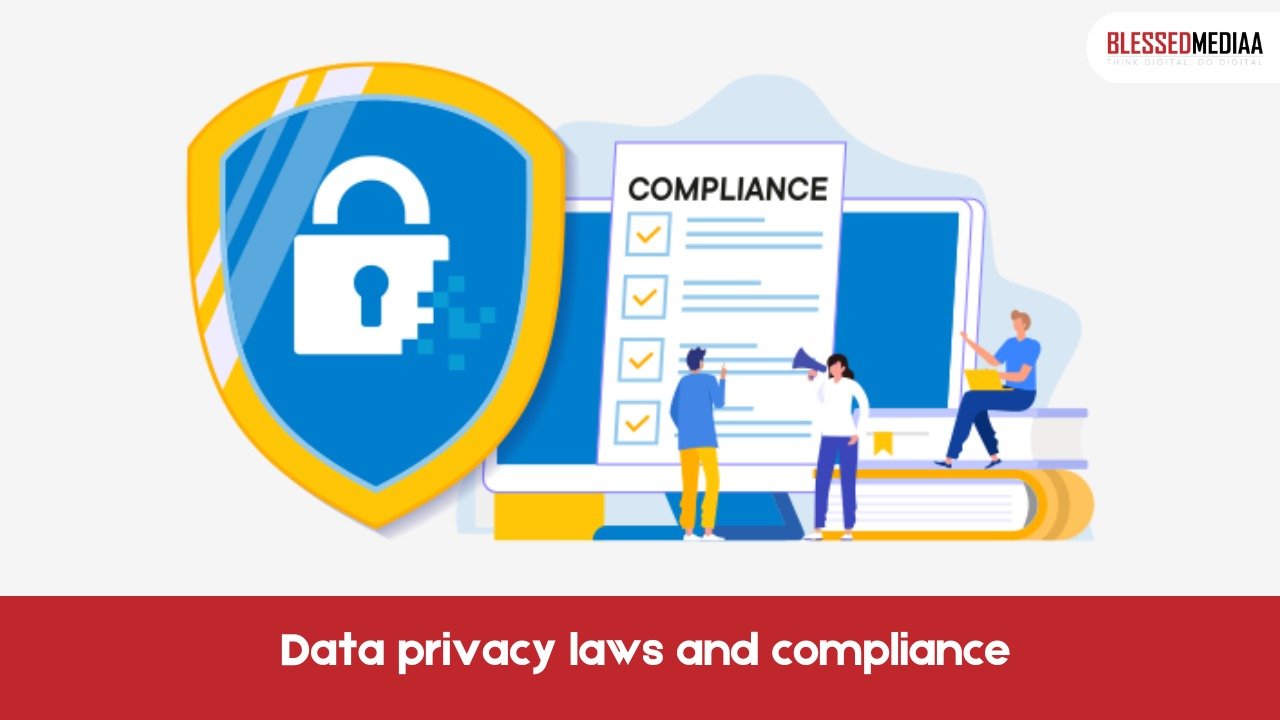What is Privacy compliance
What is Privacy laws and compliance where we bring to you topics that help you learn more. We explain complex subjects in a simple way so you can understand without difficulty. Today’s post is about Data Privacy Laws and Compliance, a topic that’s becoming increasingly relevant in our digital world.

Understanding the Digital Personal Data Protection: What You Need to Know
In today’s digital era, personal data is shared almost everywhere—from booking movie tickets online to placing orders in a mall. But have you ever stopped to consider how that data is digital managed?
That’s where data privacy compliance comes into play. It ensures that a company operates in accordance with established personal information protection guidelines, specifications, or legislation, and that it maintains accountability when handling sensitive data.
Introduction to the Digital Personal Data Protection Act (DPDP), 2023
The Digital Personal Data Protection Act, 2023 (DPDP Act), has received significant attention. Experts across industries—especially legal, healthcare, gaming, and advertising—are analyzing how organizations meet legal and regulatory requirements through privacy frameworks.
The DPDP Act applies to any data fiduciary (organization or person) that processes personal data. It focuses on a business’s commitment to protecting customer data, implementing robust security measures, and avoiding legal penalties that could damage the company’s reputation.
Who is the Data Principal?
A data principal is any individual whose data is being collected data or processed. Whether you register on a web application, sign up for a managed service provider, or submit your information during onboarding, your details are now protected under this law.
How Is Data Processed?
The DPDP Act outlines four main scenarios for data processing:
- Consent-Based Sharing
You voluntarily provide your data—for example, submitting your phone number during an online signup. This must be recorded in data privacy policy documentation. - Agreement-Based Processing
Clicking “I Agree” to privacy terms on a website makes your data available under those terms. Legal teams often create legal templates to standardize these agreements. - Employment-Related Processing
Employers process personal information like PAN numbers and salary details for organizational needs. In these cases, the business must follow standard operating procedures and comply with privacy compliance laws. - Other Situations
Hospitals, for instance, retain personal health data for patient care. Government forms and travel data also fall under this bracket.
Exemptions from the Law
Some scenarios are exempt from data privacy regulation:
- Personal Sharing with Family: Using your sibling’s ID to book tickets is not covered.
- Voluntary Public Posts: Sharing data publicly on social media excludes it from protection.
- Legal Disclosures: If courts publish addresses or names in official rulings, they’re not bound by the DPDP Act.
What Rights Do You Have as a Data Principal?
The DPDP Act grants the following rights:
- Right to Information: Understand how your data is being used.
- Right to Withdraw Consent: Ask data fiduciaries to stop processing your data.
- Right to Grievance Redressal: Raise complaints via official channels.
Withdrawing Your Data
Here’s how to take back your data:
- Contact the Data Fiduciary
Request them to stop collecting or using your data. Keep documentation, such as emails or request IDs. - Escalate to the Data Protection Board
If unresolved, take your complaint to the Board. Non-compliance can lead to legal penalties and sanctions against the data handler.
Real-World Compliance: Why It Matters
Data privacy compliance is essential for businesses to:
- Protect sensitive data
- Avoid fines and regulatory issues
- Maintain trust with clients and users
- Operate according to legal frameworks such as BPMS (Business Process Management Systems)
Even giants like Microsoft Word, which handles documents globally, are updating data security protocols to align with international regulations.
Why Businesses Must Pay Attention
Understanding what are standard operating procedures for privacy compliance helps businesses mitigate risks and streamline processes. It’s also closely linked to other key functions, such as:
- Definition of Customer Relations Management (CRM): A system for managing a company’s interactions with current and future customers.
- Marketing Development Funds (MDF): Often governed by data-sharing agreements, requiring compliance with local laws.
- Information and Communication Technology (ICT): The backbone of all digital operations must now align with secure and lawful data practices.
Training and Career Growth in Data Privacy
To stay ahead, professionals can enroll in specialized courses like those offered by Legal Edge Law School, which includes 15+ hours of live training, internships, and certification in data protection and compliance.
Understanding how to troubleshoot a breach, manage compliance, and ensure privacy-by-design can open up high-paying careers in the legal and tech industries.
Conclusion
The Digital Personal Data Protection Act, 2023, marks a major step toward a more secure and privacy-conscious digital India. From knowing your rights as a data principal to understanding how businesses must comply with privacy regulations, every individual and organization stands to benefit.
Implementing robust security measures isn’t just about technology—it’s about protecting customer trust, ensuring regulatory compliance, and maintaining business reputatio
Stay tuned to Blessedmedia for more informative guides on data privacy, cybersecurity, and digital law.
